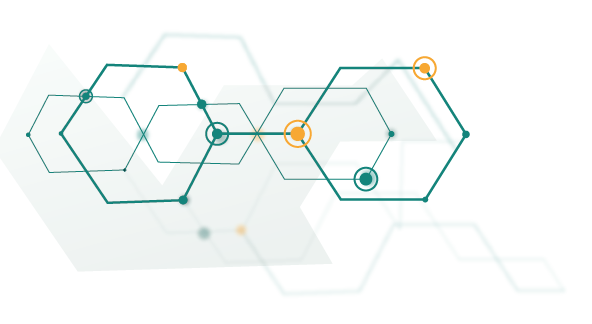Sessions in: Sustainable Food Systems
F.1. David against Goliath: Diversity to foster resilient agri-food systems
Katharina Biely
Wageningen University and Research, The Netherlands
Agri-food systems are coined by market concentration [1]. However, this concentration creates lock-ins and dependencies. The Ukraine war illustrated, amongst others, the risk of dependencies within the agri-food system [2]. Furthermore, the reduction of diversity on the fields makes crops more prone to the development and spread of pathogens. Examples are the Panama disease on banana plantations or the bird flu for poultry farming. These pathogens can also pose a risk to human health (e.g., through new pandemics).
Thus, the reduction of diversity on the field as well as the concentration along the value chain reduces the resilience of the agri-food system. Therefore, sustainable agri-food systems need to embrace diversity on the field and along the value chain. There are initiatives and trends to increase diversity such as alternative farm practices (e.g., organic farming, agroecology, and integrated farming) and alternative marketing channels (e.g., community-supported agriculture, vegetable boxes, direct marketing, food cooperatives). However, these initiatives remain negligible. The current agri-food system supports efficiency and profit maximization, which might not provide vital ground for diversity to flourish.
In this session, we want to explore initiatives that foster diversity on the field and along the supply chain to increase the sustainability and resilience of agri-food systems. We welcome contributions along this main theme as well as on the following lines:
- Diversity and resilience: Studies that shed light on the connection between diversity within agri-food systems and resilience.
- Barriers and success strategies: Studies that explore how initiatives develop and survive in an environment that might not support diversity.
- Agri-food transformation: Studies that investigate how diversification could become mainstream.
References:
1. Shand, H., K.J. Wetter, and K. Chowdhry, Food Barons 2022: Crisis Profiteering, Digitalization and Shifting Power. 2022, ETC Group.
2. Liu, L., et al., The cascade influence of grain trade shocks on countries in the context of the Russia-Ukraine conflict. Humanities and Social Sciences Communications, 2023. 10(1): p. 449.

F.2. Integrated policy strategies for urban green spaces
Sandra Karner, David Steinwender
Interdisciplinary Research Centre (IFZ), Graz, Austria
Green spaces in urban areas are multifunctional and serve both social purposes, such as recreation, sports, education, food production, and meeting places, and ecological purposes, such as ecosystems/biotopes and water/climate regulation. However, they are also contested spaces, especially in urban areas where space is rare and often considered as a commodity. Consequently, related policies and planning are best done through integrated approaches that holistically address these multiple purposes and potentially conflicting agendas and strategies.
Conflicts may emerge regarding different interests concerning the use of urban areas. Should green spaces be preserved at all? Which (social) purposes a green space should serve? Which utilizations have priority? For whom are the green spaces accessible and to what extent? Who decides? Another contentious aspect tackles questions around ‘natural wilderness’ and ‘cultivation’. Under which conditions, within which cultural framing, with which objectives and with which methods is this cultivation carried (ranging from a forest to an ornamental garden and an English lawn to a vegetable garden)?
Top-down approaches to planning urban green spaces might have limits regarding the questions raised in the previous paragraph, and whether these spaces can fulfil different needs of people to use green spaces and of ecosystems to function. Therefore, policies and planning of green spaces, require an interdisciplinary and integrating perspective.
At this point, integrated (policy) strategies as an “attempt to create or reconstruct a policy domain with coherent policy goals and a consistent set of policy instruments that support each other in the achievement of the goals” (Rayner & Howlett 2009) provide a promising approach. This means, for example, combining social and cultural policy measures with climate- and biodiversity-related policies.
Integrated policies do not only concern the administrative and political sphere, but also bottom-up perspectives from citizens (users) and representative stakeholders, i.e. from social organizations and advocacy groups, and subject matter experts (such as on biodiversity).
We invite presentations that explore good practice examples of integrated policy measures in planning urban green spaces, which build on inclusive formats of stakeholder and citizen participation. Work that also considers intersectionality aspects* is specifically welcome.
Contributions should address one or more of the following questions:
- In which ways can policy measures be integrated? What are the driving forces? Which frameworks can be applied to the analysis of good practices?
- How can the ideas and needs of specific societal groups be taken into account? Which processes and methods have proven to be useful?
- In what sense is intersectionality considered? How can intersectionality categories be tackled?
- How to deal with contentious aspects and interests in integrated policies and planning?
Presentations may range from conceptual to empirical work, literature reviews and studies exploring the topic of ‘integrated policy strategies for urban green spaces’.
* We refer to intersectionality as “race, gender, disability, sexuality, class, age, and other social categories that are interrelated and lead to different levels of power and oppression influenced by forces like colonialism and neoliberalism”. (Thaler & Karner 2023).

